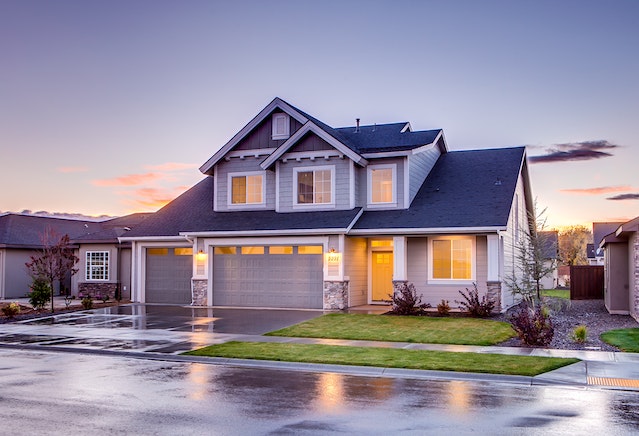Choosing to buy a home is a decision that makes sense – so much sense in fact, that you might be fooled into thinking it’s easier than it actually is. In this blog article, we look at five tips for buying a new home the right way!
When Should You Start Looking for a New Home?
There’s no one answer to the question of when you should start looking for a new home, as there are a lot of factors that need to be considered. However, here are five tips to help you start the process:
1. Begin planning your move well in advance. Make sure you have an idea of what you want and have realistic expectations about when you’ll be able to find the right home. It might be a wise choice to hire an estate agent to help you buy real estate in Bend Oregon.
2. Talk to family and friends who have bought or sold homes in your area. Ask them for their advice on which area is best for you, based on your needs and preferences.
4. Check online database services, which can show you detailed information about properties in your desired area, including prices and recent sales data. This information can help you decide if now is a good time to start shopping for a home, or if you should wait until another opportunity arises later in the year or spring next year.”
How to Find Out if a Home is Right For You
So you’ve picked a home, and now you need to know if it’s the right one for you. Here are some tips to help you find out:
1. Take the time to scout out the property yourself. Walk around it, take pictures, make notes about what you like and don’t like. This will help jog your memory when you come back later to visit or consider making an offer on the property.
2. Talk to friends and family who live in similar neighborhoods or towns, and ask them if they have any recommendations for homes that would be a good fit for you. Many people trust their gut when it comes to buying a home, so hearing unbiased advice can be invaluable. After selecting a home, moving is one of the important parts. Search moving companies near me and get an estimate of moving.
3. Consider getting a home inspection. Not only will this give you peace of mind that everything is in working order, but it can also help identify any potential problems that may need fixing before committing to buying a house. Home inspectors typically charge around $200-300 per inspection, which is usually worth the expense in case there are any costly repairs that need to be made after purchase.
4. Make sure your credit score is strong enough for the kind of mortgage you want to take out on a home – some lenders require higher scores than others do (typically around 600-700). If your credit score isn’t as high as you’d ideally like it to be, there are certain loan options available that may still
What Priorities Should I Prioritize in my Search?
Regardless of your budget or lifestyle, there are certain things you should always prioritize when purchasing a home. In this article, we will outline three essential tips to help you buy the right home for your needs – regardless of how much money you have to spend!
1. Talk To A Real Estate Agent
First and foremost, it’s important to talk to a real estate agent. They can give you an honest assessment of what homes fit your needs and can offer suggestions on how to save money on your purchase. By working with a professional, you can be sure that all aspects of the home-buying process are taken into account and that you’re getting the best deal possible.
2. Use The Right Tools
Mortgage calculators , and loan approval rates to get an idea of your options . Once you have a general idea of what type of home suits your needs and budget, it’s time to start investigating properties. Use websites like Zillow and Trulia to locate properties near where you live and focus on houses in good condition that meet your price range. It’s also important to note that not all homes sold in America are located in major metropolitan areas; rural properties may be a better fit for some buyers. Use tools like and to get an idea of your options. Once you have a general idea of what type of home suits your needs and budget, it’s time to start investigating properties.
Tips For Buying A House
When you are ready to purchase a home, there are a few things you need to keep in mind.
The first thing to remember is the location. Make sure you have a clear idea of where you want to live and look for areas that fit your budget and needs. Once you know the area, start looking at houses that fit your criteria.
When it comes to price, don’t be afraid to negotiate. If you find a house that’s perfect but it’s over your budget, ask the seller if they can reduce the price or if there is another way you could make the purchase work.
Another thing to keep in mind when purchasing a home is the fact that repairs and updates are always necessary. Make sure you have an idea of what needs updating or fixing in the home before making an offer and see if any of these projects can be done as part of the sale agreement.
Lastly, it’s important to have realistic expectations when buying a home. Don’t expect things like farmland or oceanside property; instead, think about what type of home will best suit your needs and budget. Be patient and take your time finding the right place – eventually, it will all pay off!
Resources and Tips
1. Knowing Your Needs
Before any real buying decisions can be made, it is important to know what your needs are and what you are looking for in a home. This will help narrow down the search and make the process more manageable. There is no specific order to take on this step, as it really depends on what is most important to you.
Also read: Best Real Estate Tips for Home Buyers
2. Searching For The Right Home
After knowing your needs, the next step is to start searching for the right home. There are a few things you should keep in mind when doing this: first and foremost, find an area that meets your needs and wants; secondly, make sure the home has room for your family; lastly, consider budget constraints as well.
3. Preparing A Pre-Purchase Inspection
One of the best ways to ensure you are making an informed decision about buying a home is to have a pre-purchase inspection done by a professional inspector. This will help identify potential problems with the property that may not be apparent during regular inspections. It is also important to remember that not all problems warrant full blown repairs or replacement of components within the home – some can just require attention prior to closing!
4. Getting Expert Opinion Regarding Closing Costs
Once you have found and inspected a potential home, it’s time to get an expert opinion concerning closing costs. Closing costs can vary significantly based on the size of your down payment, loan amount and other factors, so it is important that you speak with

